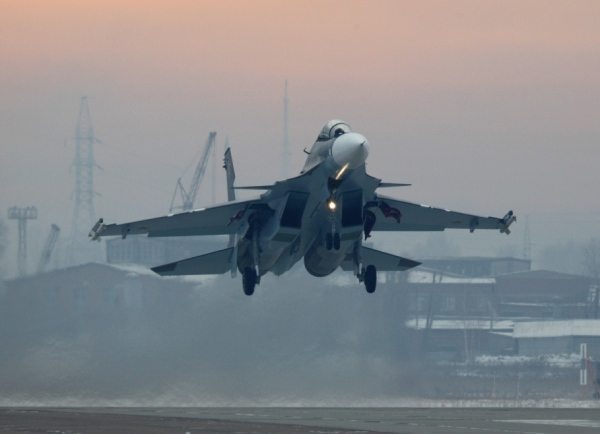Sales by Russian arms manufacturers continue to expand thanks to Moscow’s investments despite a downturn in global defence spending, a Stockholm-based think-tank said Monday.
“The remarkable increases in Russian companies’ arms sales in both 2012 and 2013 are in large part due to uninterrupted investments in military procurement by the Russian government during the 2000s,” said Siemon Wezeman, senior researcher at the Stockholm International Peace Research Institute (SIPRI).
Sales by Russian-based arms firms grew by 20 percent in 2013, according to SIPRI.
However, figures for the 100 biggest arms-dealing nations excluding China declined for the third year in a row, with a two-percent drop in sales in 2013 to $402 billion (322 billion euros).
SIPRI’s report does not include China due to a lack of reliable data. China’s companies supply a military that enjoys the world’s second-biggest budget.
The Russian company with the biggest increase in sales in 2013 was Tactical Missiles Corporation, which registered a 118-percent hike, followed by Almaz-Antey, with a 34 percent increase.
Almaz-Antey is now the 12th-largest arms manufacturer in the world, getting closer to the top 10, “which has been exclusively populated by arms producers from the US or Western Europe since the end of the Cold War,” SIPRI said.
The think-tank mentioned the withdrawal from Afghanistan and Iraq as one of the main reasons for a 4.5-percent decline in arms sales by US companies.
Western firms still lead
Despite the decrease, the US still dominates the list with six companies in the top 10.
US group Lockheed Martin is number one, with sales of $35.5 billion in 2013, followed by fellow-US firm Boeing.
As for the buyers, world military expenditure fell in 2013 by 1.9 percent, mostly dragged down by cuts in the United States and other Western countries, SIPRI said in a previous report published in April.
Russia was the third-largest spender in defence after the US and China and has more than doubled its military expenditure since 2004, according to SIPRI’s April report.
Russia’s increasing assertiveness in neighboring regions, including the annexation of Crimea and repeated airspace violations in Europe, has become a major concern for Western countries.
Pro-Russian separatists in east Ukraine have been fighting Ukrainian forces since April in a war which has claimed more than 4,000 lives and driven hundreds of thousands of people from their homes.
Moscow has repeatedly denied involvement but openly gives political backing to the self-declared separatist statelets in the east.
SIPRI was created in 1966 and is partly financed by the Swedish state. It specializes in research on conflicts, weapons, arms control and disarmament.
The think-tank defines arms sales as “sales of military goods and services to military customers including both sales for domestic procurement and sales for export.”










